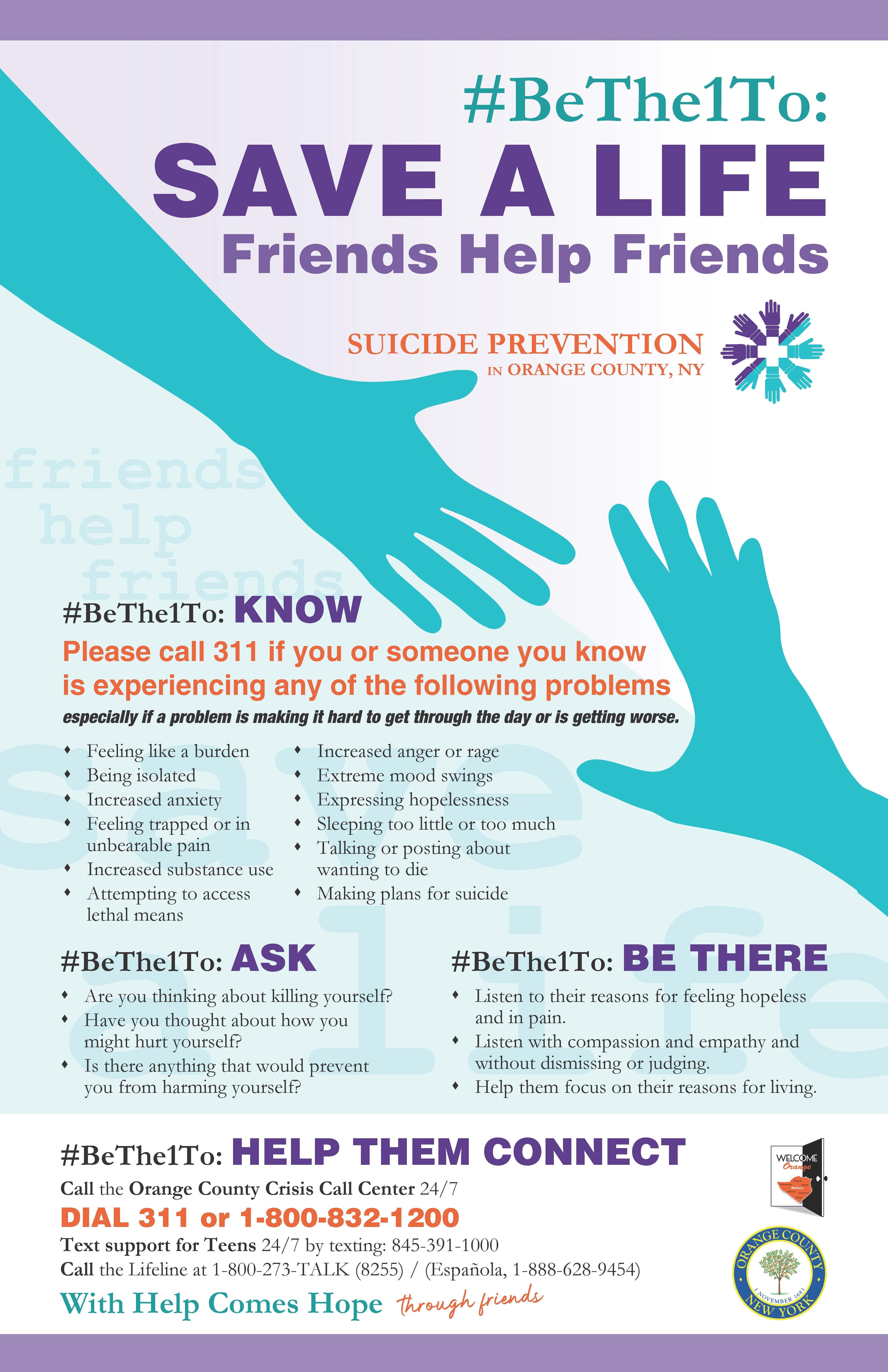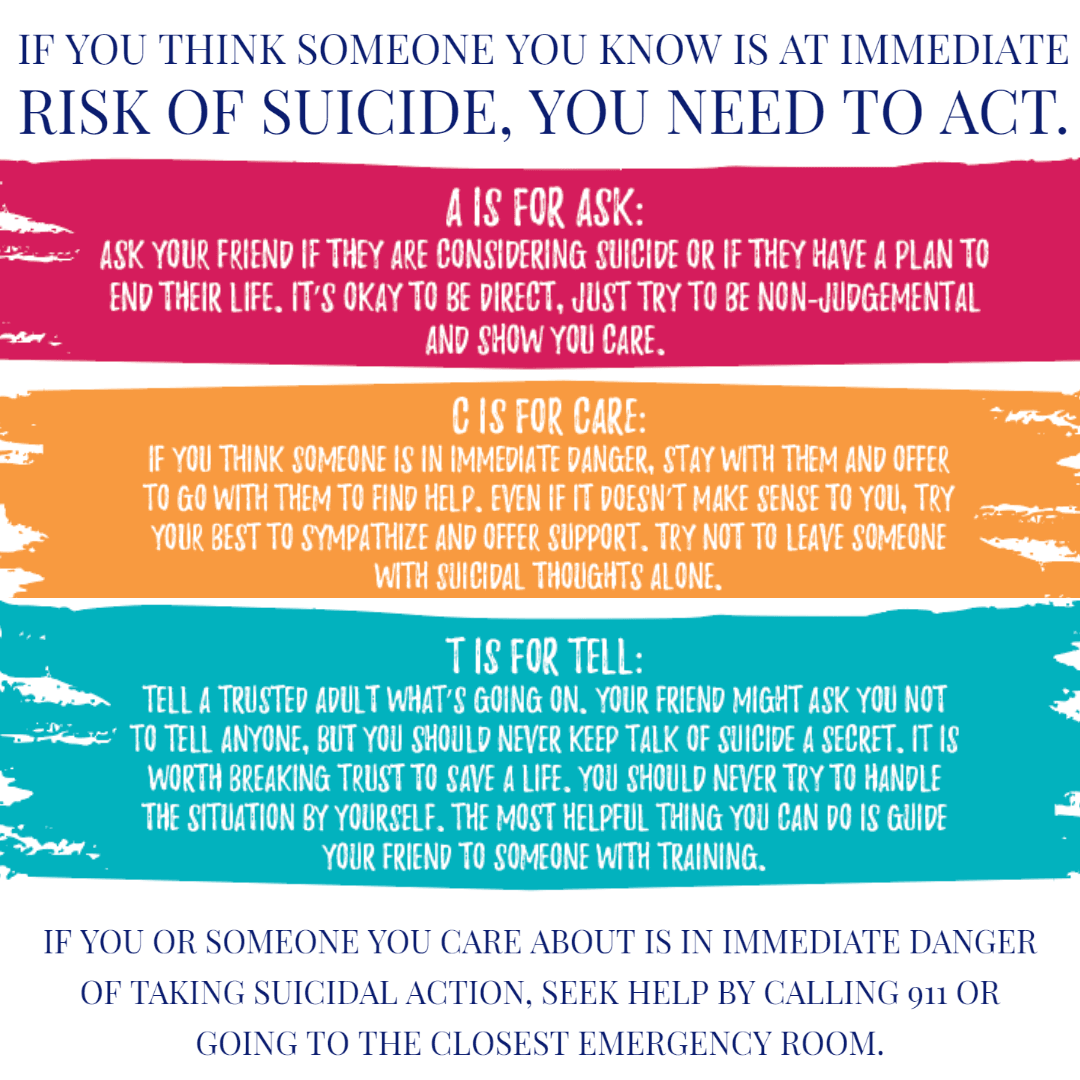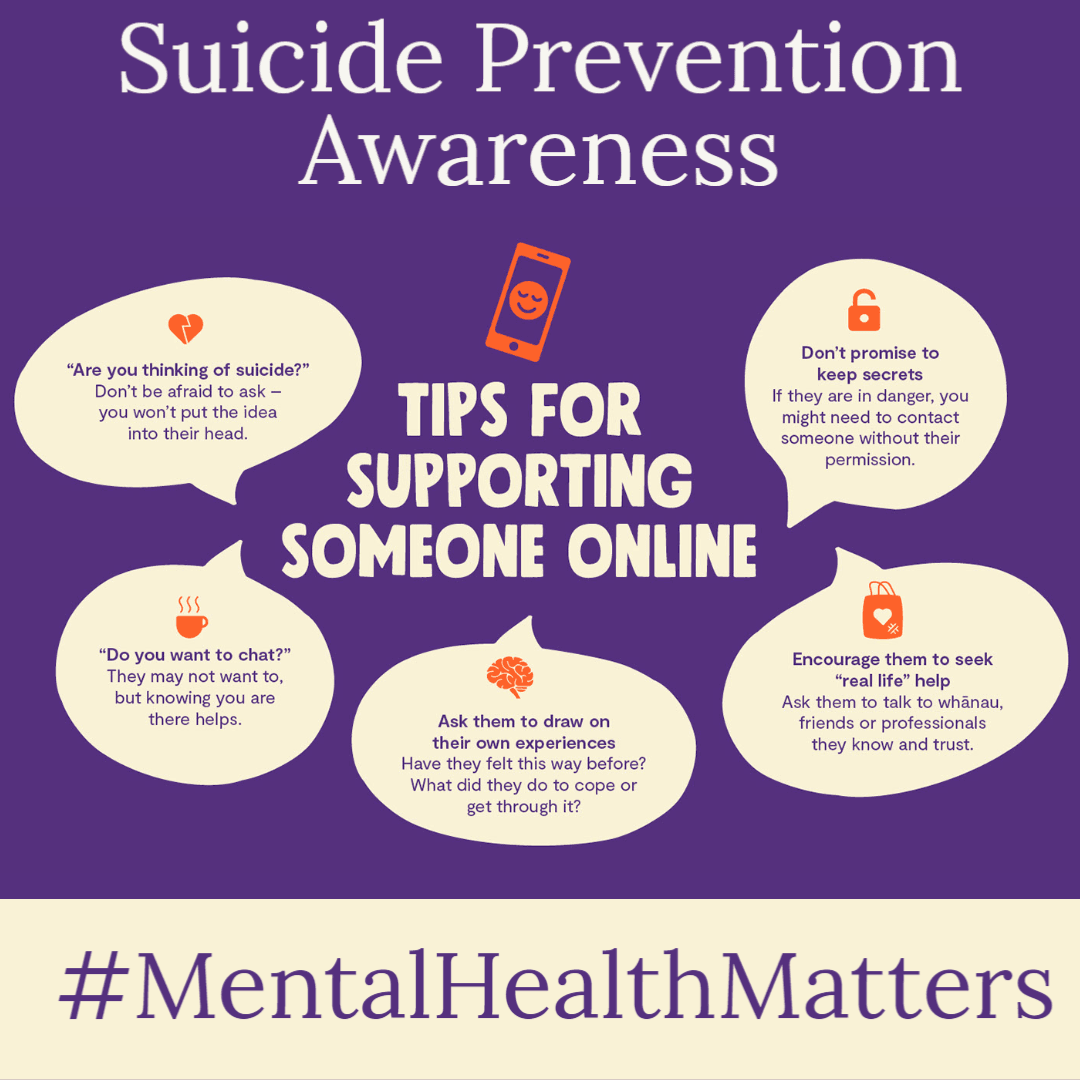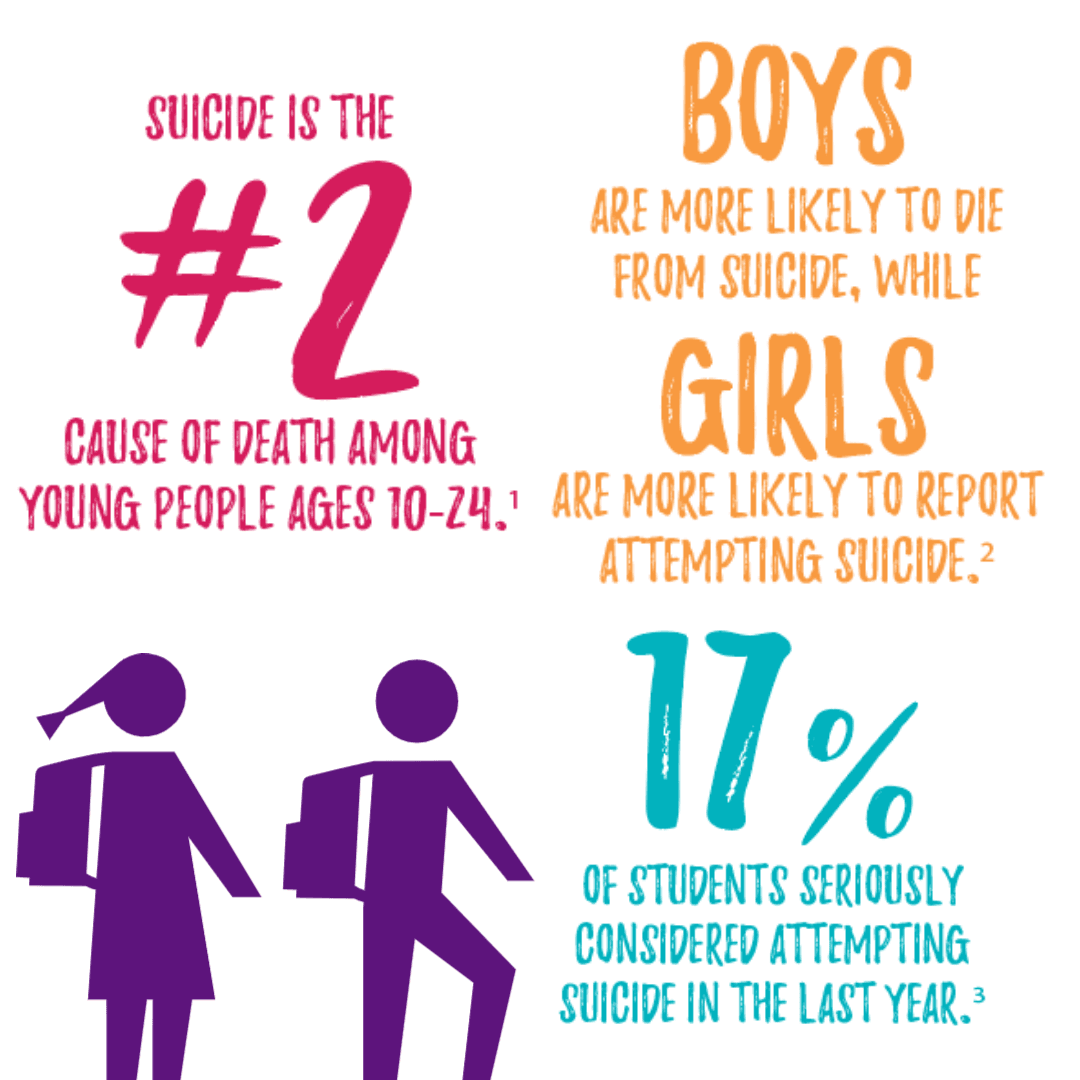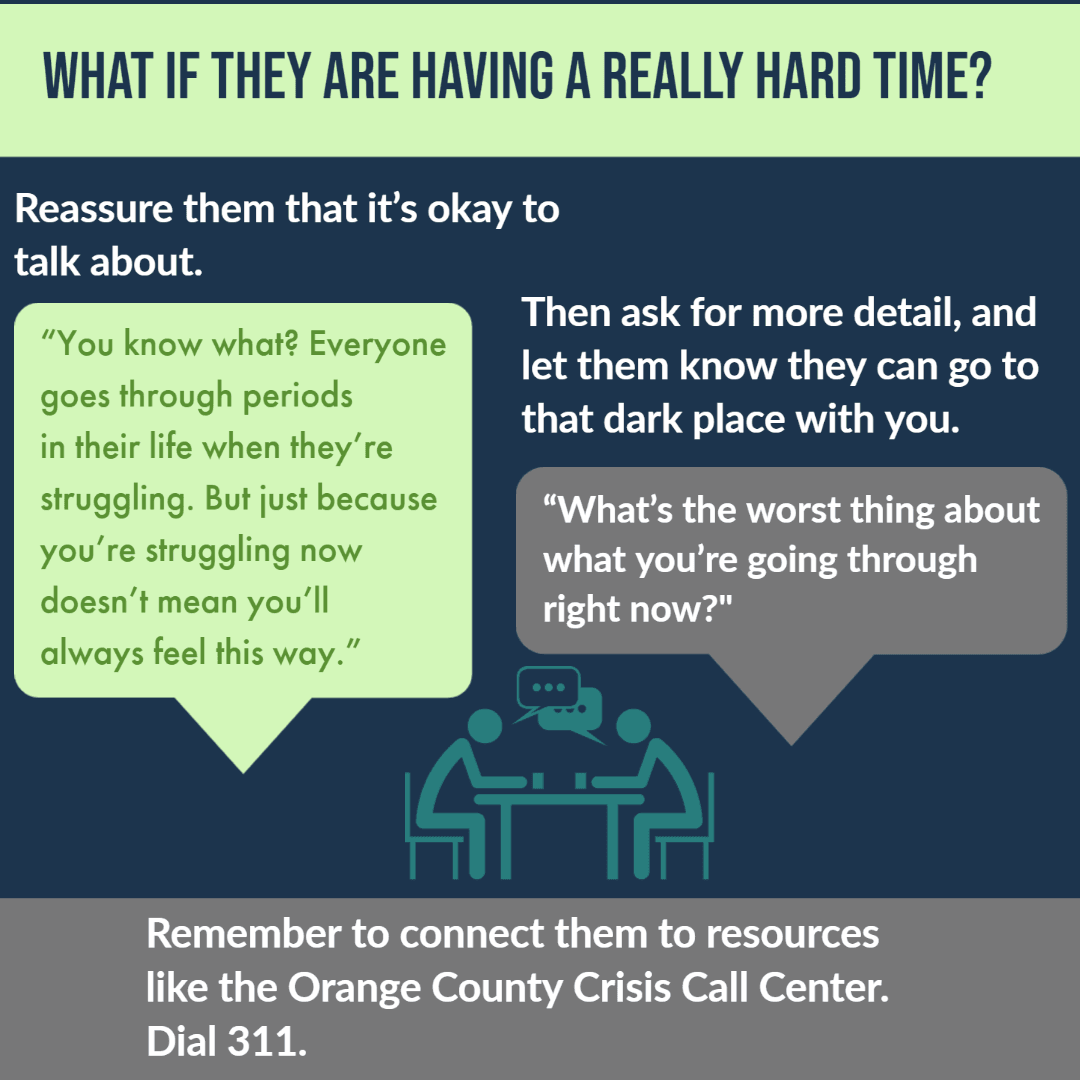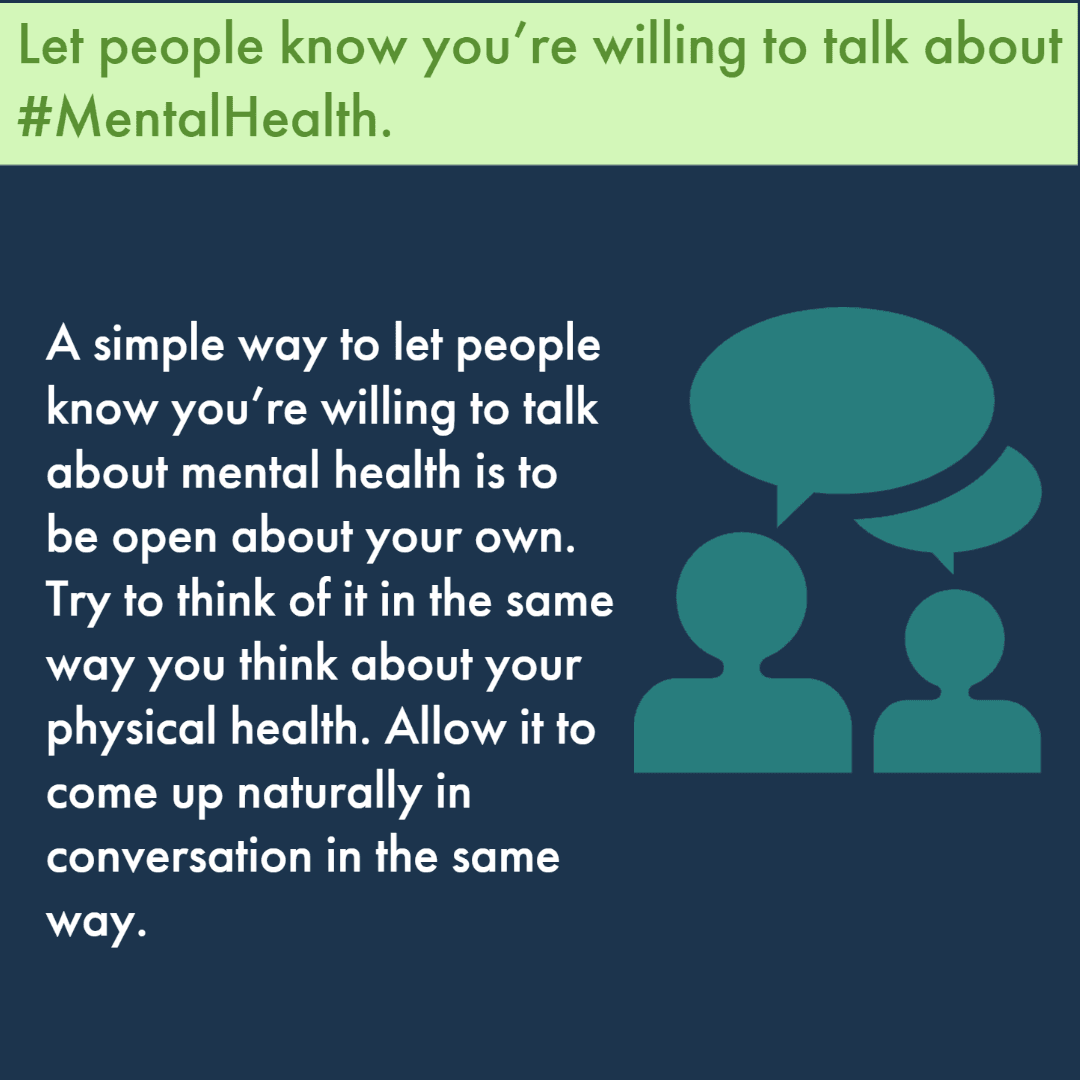Suicide Awareness and Prevention Month
MHA is a proud member of the Orange County Suicide Prevention Task Force. The Orange County Suicide Prevention Task Force has been in existence since December 2005. The committee is comprised of members from community agencies, County Departments, and regional organizations devoted to suicide prevention.
The Task Force has worked through the years to promote awareness and education through training and through the development of resources such as our Orange County School Guide and our Friends Help Friends cards. Several committee members have become trainers in the Question, Persuade, Refer, (QPR), safeTALK, and Mental Health First Aid curriculums.
To date, thousands of students and hundreds of community members and professionals have participated in one of these trainings. In addition, we have co-sponsored community forums with school districts to promote awareness and to reduce stigma associated with seeking help for mental illness. Our committee has assisted school districts with developing their own suicide prevention, intervention and postvention policies as well as assisted with incorporating suicide prevention training into health curriculum for students.
Warning Signs & Symbols
- Talking about suicide or a plan*
- Seeking out ways to harm or kill oneself*
- Saying other things like: “I’m going to kill myself,” “I wish I were dead,” or “I shouldn’t have been born” *
- Withdrawal from friends and family
- Change in eating and sleeping habits
- Loss of interest in pleasurable activities
- Frequent complaints about physical symptoms, often related to emotions, such as stomachaches, headaches, fatigue, etc.
- Loss of interest in things one cares about
- Preoccupation with death
- Exhibiting impulsivity such as violent actions, rebellious behavior, or running away
- Complaining of being a bad person or feeling “rotten inside”
- Making statements about hopelessness, helplessness, worthlessness, or being “beyond help”
- Marked personality change and serious mood changes
- Giving verbal hints with statements such as: “I won’t be a problem for you much longer,” “Nothing matters,” “It is no use, “and “I won’t see you again”
- Becoming suddenly cheerful after a period of depression-this may mean that the someone has already made the decision to escape all problems by ending his/her life
- Giving away favorite possessions
- Difficulty concentrating and a decline in quality of schoolwork
* These signs and behaviors indicate an individual needs immediate professional attention or 9-8-8 should be called.
How Can I Help & What Can I Say
Talking to a friend or family member about their suicidal thoughts and feelings can be extremely difficult, but if you are unsure whether someone is suicidal, the best way to find out is to ask. You cannot make a person suicidal by showing that you care. In fact, giving a suicidal person the opportunity to express his or her feelings can provide relief from loneliness and pent-up negative feelings, and may prevent a suicide attempt.
It is important to take any suicidal thought or behavior seriously. It is not just a warning sign that the person is thinking about suicide - it is a cry for help!
Here are some tips:
- Be direct. Talk openly and matter-of-factly about suicide.
- Be willing to listen. Allow expressions of feelings. Accept the feelings.
- Be non-judgmental. Do not debate whether suicide is right or wrong, or whether feelings are good or bad. Do not lecture on the value of life.
- Get involved. Become available. Show interest and support.
- Do not dare him or her to do it.
- Do not act shocked. This will put distance between you.
- Do not be sworn to secrecy. Seek support.
- Offer hope that alternatives are available but do not offer glib reassurance.
- Act. Remove means, such as guns or stockpiled pills.
- Get help from persons or agencies specializing in crisis intervention and suicide prevention.
- This content was developed by the American Association of Suicidology.
Some Key Points to Convey in Your Conversation
- You are not in it alone. I am here for you.
- You may not believe it now, but the way you are feeling will change.
- I may not be able to understand exactly the way you feel, but I care about you and want to help.
- When you want to give up, tell yourself to hold on just a little longer.
Resources
